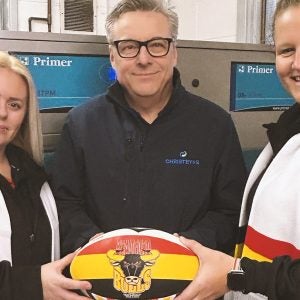UK
Fishers, the commercial laundry and textile rental business, has launched a Knowledge Transfer Partnership (KTP) with the University of Strathclyde designed to help the company to capitalise on its innovative radio frequency identification (RFID) enabled bed linen and towels. The company plans to investigate what other applications the technology may have in the future.
The two-year project is being co-funded by a grant from the Engineering and Physical Sciences Research Council and the Scottish Funding Council. The UK’s KTP programme is run by the UK’s innovation agency, Innovate UK.
Fishers currently fits its entire top of the range “Zhen” bed linen and towels with RFID technology. This enables both Fishers and its customers to keep track of all textiles – helping hotels to know precisely how much stock they are holding and letting Fishers keep tabs on where all of its RFID tagged laundry is in the washing, delivery and collection cycle. Fishers washes, dries and irons two million pieces of linen every week.
The KTP project will help Fishers to:
Capitalise on the analysis and interpretation of the “big data” generated by its RFID tagged bed linen and towels
Improve Fishers’ strategic planning skills around textile purchasing
Improve its specification of bed linen and towel characteristics from suppliers
Help the company to develop the intellectual property (IP) related to its Zhen range of textiles.
“We’re committed to innovation, both to keep our customers ahead of the game and to ensure that Fishers can continue to provide the best service possible for those customers,” said Michael Jones, managing director of Fishers. “As the market leader in Scotland and the North East of England, it’s important that Fishers is seen to be leading the industry in the important area of RFID.”
He added: “We have always looked on ourselves as part of the hospitality sector rather than simply a laundry business and we are constantly refining what we do and how we do it in order to help Scotland provide the warmest welcome it can to visitors.”






